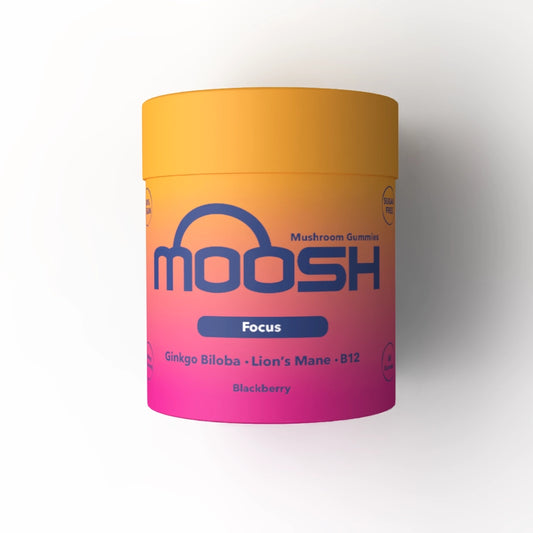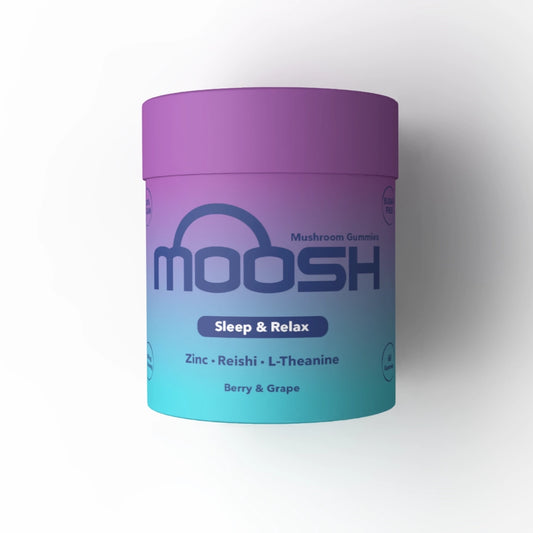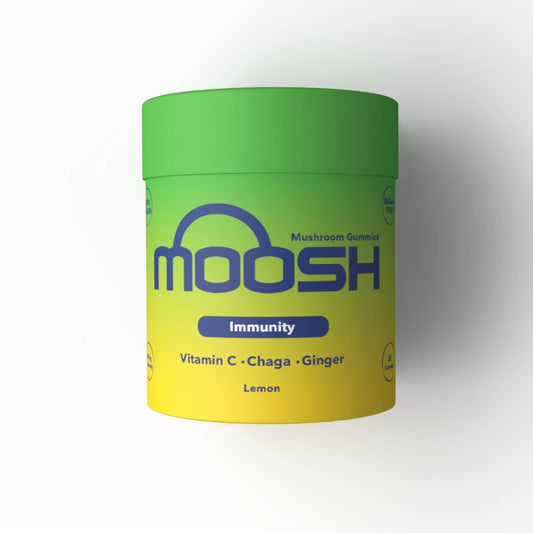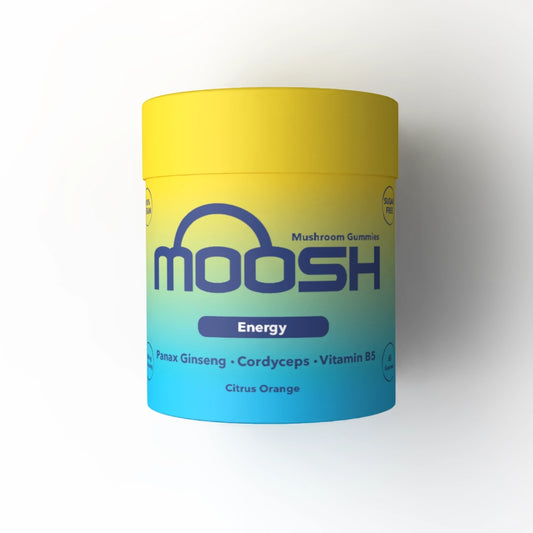In today’s fast-paced world, stress and worry have become all too common. For some, these feelings manifest as anxiety attacks, while for others, they escalate into panic attacks. Understanding the differences between the two is crucial for effective management and treatment. Moreover, the emergence of alternative remedies, such as functional mushrooms, offers new avenues for alleviating symptoms and promoting mental well-being.
What is an Anxiety Attack?
Anxiety is fundamentally an emotional reaction often linked to the anticipation or handling of stressful situations, experiences, or events. It can emerge gradually or suddenly.
Common signs of anxiety include feelings of worry, distress, and fear. When these signs intensify suddenly and significantly, individuals may colloquially describe the experience as an "anxiety attack." However, it's important to recognize that what they're experiencing might more closely align with a panic attack or a severe bout of anxiety.
The Diagnostic and Statistical Manual of Mental Disorders (DSM) doesn't classify anxiety attacks as a distinct diagnosis. Instead, it categorises various anxiety-related conditions, such as:
- Generalised anxiety disorder
- Panic disorder
- Separation anxiety disorder
- Agoraphobia without a history of panic disorder
- Social anxiety disorder
- Specific phobia
What is a Panic Attack?
Panic attacks, on the other hand, are sudden bouts of overwhelming fear or anxiety that peak within minutes. They often occur without warning and can be accompanied by physical symptoms such as chest pain, shortness of breath, dizziness, and a sense of detachment from reality. Unlike anxiety attacks, panic attacks tend to subside relatively quickly but can leave individuals feeling exhausted and emotionally drained.
Symptoms of Panic Attack vs. Anxiety Attack
While panic attacks and anxiety attacks exhibit similar symptoms, there are distinct differences that aid in their identification. Panic attacks typically manifest with a sudden onset of intense fear, accompanied by physical sensations like chest pain and dizziness. Conversely, anxiety attacks often entail a gradual escalation of worry or tension, presenting symptoms such as muscle tension and restlessness. Additional symptoms may include:
- Apprehension and worry
- Intense distress
- Fear of losing control or dying
- Feeling detached from reality (derealization) or oneself (depersonalization)
- Heart palpitations or rapid heartbeat
- Chest pain
- Shortness of breath
- Throat tightness or sensation of choking
- Dry mouth
- Sweating
- Chills or hot flashes
- Trembling or shaking
- Numbness or tingling (paresthesia)
- Nausea, abdominal pain, or upset stomach
- Headache
- Feeling faint or dizzy
Causes of Panic Attack vs. Anxiety Attack
The causes of panic attacks and anxiety attacks can be quite diverse, involving a mix of things like genetics, biology, and environment. Panic attacks often have a specific trigger, like a phobia or a past traumatic event. On the other hand, anxiety attacks can result from ongoing stress or underlying mental health conditions, such as generalised anxiety disorder or panic disorder. These conditions can make someone more sensitive to stress, leading to more frequent or intense attacks. Other factors, like family history and life experiences, can also play a role in how these attacks develop and recur. Understanding all these factors helps in figuring out the best ways to treat and manage panic and anxiety attacks.
Risk Factors for Panic Attack vs. Anxiety Attack
There are several factors that can heighten the risk of experiencing panic attacks or anxiety attacks, delving into both inherent and environmental influences.
Firstly, genetics can significantly contribute to an individual's susceptibility to these conditions. If someone has a family history of anxiety disorders, they're more likely to develop similar issues themselves. This genetic predisposition can lay the groundwork for heightened sensitivity to stressors and trigger mechanisms associated with panic and anxiety attacks.
Furthermore, environmental stressors play a pivotal role in exacerbating these conditions. Factors like high-pressure work environments, strained relationships, financial difficulties, or major life changes can all contribute to heightened levels of stress and anxiety. These stressors can act as catalysts, triggering panic or anxiety attacks in susceptible individuals.
Moreover, certain lifestyle factors can also increase the risk. Substance abuse, including the misuse of drugs or alcohol, can disrupt brain chemistry and exacerbate symptoms of anxiety. Additionally, chronic health conditions or debilitating illnesses can compound feelings of worry and fear, further increasing the likelihood of experiencing panic or anxiety attacks.
Lastly, traumatic experiences, such as physical or emotional abuse, accidents, or witnessing violence, can have a profound impact on mental health. These events can lead to the development of post-traumatic stress disorder (PTSD) or other anxiety-related disorders, heightening the risk of panic or anxiety attacks as a manifestation of unresolved trauma.
Diagnosing Panic Attack vs. Anxiety Attack
Diagnosing panic attacks and anxiety attacks involves a comprehensive assessment of symptoms, medical history, and potential triggers. Healthcare professionals may use criteria outlined in the Diagnostic and Statistical Manual of Mental Disorders (DSM) to differentiate between the two conditions. Additionally, medical tests may be conducted to rule out underlying medical conditions that could be causing or exacerbating symptoms.
How Functional Mushrooms Can Help with Panic Attack vs. Anxiety Attack
Functional mushrooms, renowned for their adaptogenic and anxiolytic properties, have emerged as intriguing candidates for alleviating panic attacks and anxiety attacks. Among these, Reishi stands out as a centuries-old remedy in traditional medicine, celebrated for its calming effects and stress-reducing properties. Scientific investigations into Reishi have unveiled its potential to modulate the body's stress response and foster overall mental well-being.
Numerous studies have shed light on Reishi's therapeutic potential in managing anxiety-related symptoms. For instance, a study published in the Journal of Ethnopharmacology found that Reishi extract exhibited anxiolytic effects in mice subjected to stress-induced anxiety, suggesting its capacity to mitigate anxiety-like behaviours through modulation of neurotransmitter systems (Zhao et al., 2019). Similarly, a randomised controlled trial involving 132 individuals with neurasthenia, a condition characterised by chronic fatigue and irritability often associated with anxiety, demonstrated that Reishi supplementation significantly reduced anxiety levels compared to placebo (Geng et al., 2010). Moreover, customer anecdotes further underscore the efficacy of Reishi in managing panic and anxiety attacks. Many individuals report experiencing a noticeable reduction in feelings of nervousness, restlessness, and tension after incorporating Reishi supplements into their daily routine.
Similarly, Lion's Mane, another functional mushroom, has garnered attention for its potential in alleviating anxiety and depression symptoms. Scientific research has highlighted Lion's Mane's neuroprotective properties and its ability to enhance cognitive function and promote nerve regeneration. These properties hold promise for mitigating the neurological manifestations associated with panic attacks and anxiety attacks.
A study published in Biomedical Research demonstrated that Lion's Mane supplementation exerted anxiolytic effects in mice subjected to chronic mild stress, leading to improvements in anxiety-like behaviours and markers of oxidative stress (Nagano et al., 2010). Additionally, research published in Evidence-Based Complementary and Alternative Medicine showcased Lion's Mane's potential to enhance cognitive function and reduce depressive symptoms in individuals with mild cognitive impairment (Mori et al., 2009). Many individuals report experiencing a sense of calmness, improved mood, and reduced anxiety levels after incorporating Lion's Mane supplements into their wellness routine.
Understanding the differences between anxiety attacks and panic attacks is essential for effective management and treatment. Moreover, the potential benefits of functional mushrooms in supporting mental well-being provide new hope for individuals struggling with these debilitating conditions. Further research is needed to fully understand the mechanisms of action and optimal dosages of these natural remedies, but their potential as complementary therapies is undoubtedly promising.






